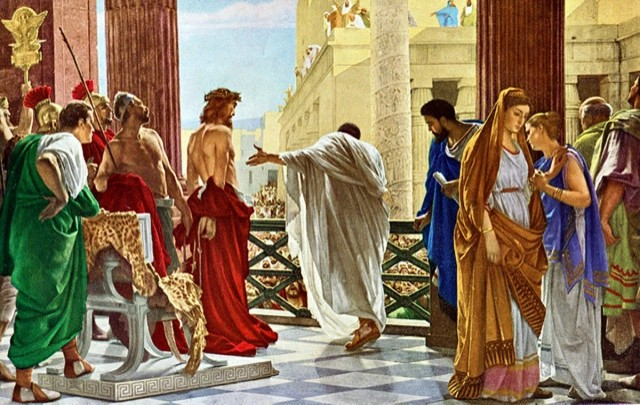Scripture:
1 Kings 8:27,29 “But will God really dwell on earth? The heavens, even the highest heaven, cannot contain you. How much less this temple I have built! … May your eyes be open toward this temple night and day, this place of which you said, ‘My Name shall be there,’ so that you will hear the prayer your servant prays toward this place.
Observation:
My personal observation is that, in the life of Solomon, there was no more regal and noble act he did than the building and dedication of the temple in Jerusalem. It was a magnificent, state-of-the-art, even opulent center of worship for the people of Israel and one that had been planned since the reign of Solomon’s father, David. But his real achievement is in understanding the true purpose of the temple. And that is succinctly expressed in the verses above. Unlike the nations around Israel, whose gods were thought to dwell in their temples – indeed, the statues they erected were thought to be the gods themselves – Solomon grasped that all he had built was a portal for prayer. He appealed to God throughout his prayer of dedication to listen to those prayers, based upon words spoken by God Himself concerning His relationship with His people. Solomon was self-deprecating in this but deeply prophetic and all-encompassing. He covered all the maladies that would befall people individually and nationally. He covered times of blessing and times of the worst judgment. Even as he foresaw the people exiled to foreign lands due to their rank sin, he asked that God would hear their prayers of penitence as they were offered towards the temple. He did not see the temple destroyed, though it would be, but that was consistent with his request that Gods eyes be open at all times towards His people. Yet in later history, even after it was destroyed the vision of temple was established in the hearts of the people. Even in the Babylonian exile, it was the temple that was at the spiritual heart of the people to be restored.
Application:
I wept when I read this today. I had a tender visitation from the Holy Spirit to remind me that this temple prayer was for me, for all God’s people across time. The prayer portal has been opened to me, not only from Solomon’s inaugural prayer but from the point the curtain was ripped in two at the death of Christ. For God does not dwell in temples but God has dwelt with humans; it happened. And all the circumstances under which Solomon prayed the people would go through have either been mine in a physical or metaphorical sense. That is, every trouble, including exile, has been lived out in my life of faith. And if there is any still unlived, then I can be sure that there is the full chance my life may yet take that turn. And yet the prayer of Solomon extends to this day into the lives of those who came to God through the only means now remaining – Messiah Yeshua (Jesus) – and the temple that could not contain God has been transferred to the temple of the Holy Spirit – the bodies of believers. Yet it remains a temple from which God’s people can stray and against which they may rebel, ignore and let fall into disrepair. Still, the prayer holds and the portal is still open. The up and down cycle is part of any life given to God. It is glory to glory, strength to strength, but between each glory and each strength there can be dissipation and rank darkness. “Turn to Jerusalem and pray” chides the Spirit, not the Jerusalem in physical Israel, though the promises remain for that place, but the New Jerusalem of God – Heaven itself in all its splendor. For the portal has been opened to THAT city once and for all.
Prayer:
Father, I thank You for this prayer-enabling prayer. Truly my life needs the devotion that Solomon prayed for. Truly You have restored me to relationship even with I fell and walked away, and for that, and for salvation in the first place, I give You PRAISE. In Jesus’ name, amen.


